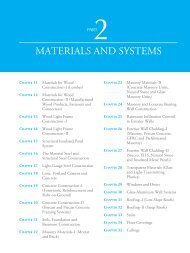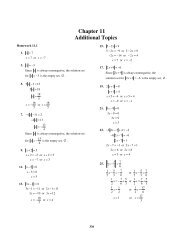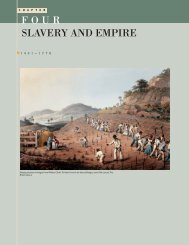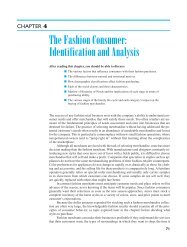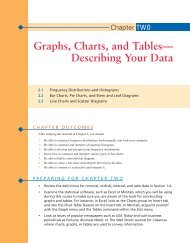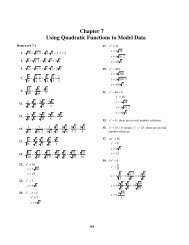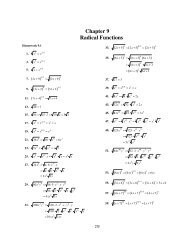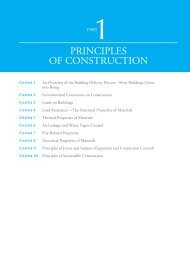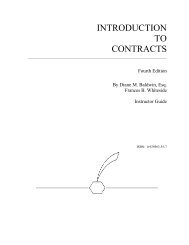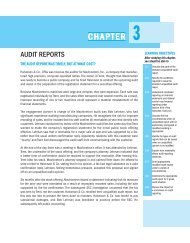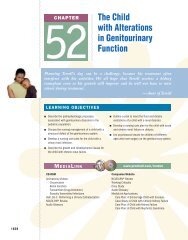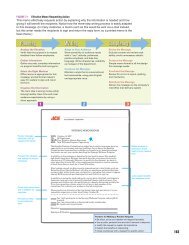audit reports
audit reports
audit reports
Create successful ePaper yourself
Turn your PDF publications into a flip-book with our unique Google optimized e-Paper software.
follow GAAP, but if the amounts are small, the misstatement is immaterial and a standard<br />
unqualified <strong>audit</strong> report is appropriate.<br />
Amounts Are Material but Do Not Overshadow the Financial Statements as a Whole<br />
The second level of materiality exists when a misstatement in the financial statements<br />
would affect a user’s decision, but the overall statements are still fairly stated and therefore<br />
useful. For example, knowledge of a large misstatement in fixed assets might affect<br />
a user’s willingness to loan money to a company if the assets were the collateral. A misstatement<br />
of inventory does not mean that cash, accounts receivable, and other elements<br />
of the financial statements, or the financial statements as a whole, are materially<br />
incorrect.<br />
To make materiality decisions when a condition requiring a departure from an<br />
unqualified report exists, the <strong>audit</strong>or must evaluate all effects on the financial state -<br />
ments. Assume that the <strong>audit</strong>or is unable to satisfy himself or herself whether inven tory<br />
is fairly stated in deciding on the appropriate type of opinion. Because of the effect of a<br />
misstatement in inventory on other accounts and on totals in the statements, the <strong>audit</strong>or<br />
needs to consider the materiality of the combined effect on inventory, total current<br />
assets, total working capital, total assets, income taxes, income taxes payable, total current<br />
liabilities, cost of goods sold, net income before taxes, and net income after taxes.<br />
When the <strong>audit</strong>or concludes that a misstatement is material but does not over -<br />
shadow the financial statements as a whole, a qualified opinion (using “except for’’) is<br />
appropriate.<br />
Amounts Are So Material or So Pervasive That Overall Fairness of the Statements Is in<br />
Question The highest level of materiality exists when users are likely to make incorrect<br />
decisions if they rely on the overall financial statements. To return to the previous<br />
example, if inventory is the largest balance on the financial statements, a large misstatement<br />
would probably be so material that the <strong>audit</strong>or’s report should indicate the financial<br />
statements taken as a whole cannot be considered fairly stated. When the highest<br />
level of materiality exists, the <strong>audit</strong>or must issue either a disclaimer of opinion or an<br />
adverse opinion, depending on which conditions exist.<br />
When determining whether an exception is highly material, the extent to which the<br />
exception affects different parts of the financial statements must be considered. This is<br />
called pervasiveness. A misclassification between cash and accounts receivable affects<br />
only those two accounts and is therefore not pervasive. On the other hand, failure to<br />
record a material sale is highly pervasive because it affects sales, accounts receivable,<br />
income tax expense, accrued income taxes, and retained earnings, which in turn affect<br />
current assets, total assets, current liabilities, total liabilities, owners’ equity, gross margin,<br />
and operating income.<br />
As misstatements become more pervasive, the likelihood of issuing an adverse<br />
opinion rather than a qualified opinion increases. For example, suppose the <strong>audit</strong>or<br />
decides a misclassification between cash and accounts receivable should result in a<br />
qualified opinion because it is material; the failure to record a sale of the same dollar<br />
amount may result in an adverse opinion because of pervasiveness.<br />
Regardless of the amount involved, a disclaimer of opinion must be issued if the<br />
<strong>audit</strong>or is determined to lack independence under the rules of the Code of Professional<br />
Conduct. This strict requirement reflects the importance of independence to <strong>audit</strong>ors.<br />
Any deviation from the independence rule is therefore considered highly material.<br />
Table 3-1 (p. 58) summarizes the relationship between materiality and the type of<br />
opinion to be issued.<br />
In concept, the effect of materiality on the type of opinion to issue is straight forward.<br />
In application, deciding on actual materiality in a given situation is a difficult judgment.<br />
There are no simple, well-defined guidelines that enable <strong>audit</strong>ors to decide when<br />
something is immaterial, material, or highly material. The evaluation of material ity<br />
Materiality Decisions<br />
CHAPTER 3 / AUDIT REPORTS 57



